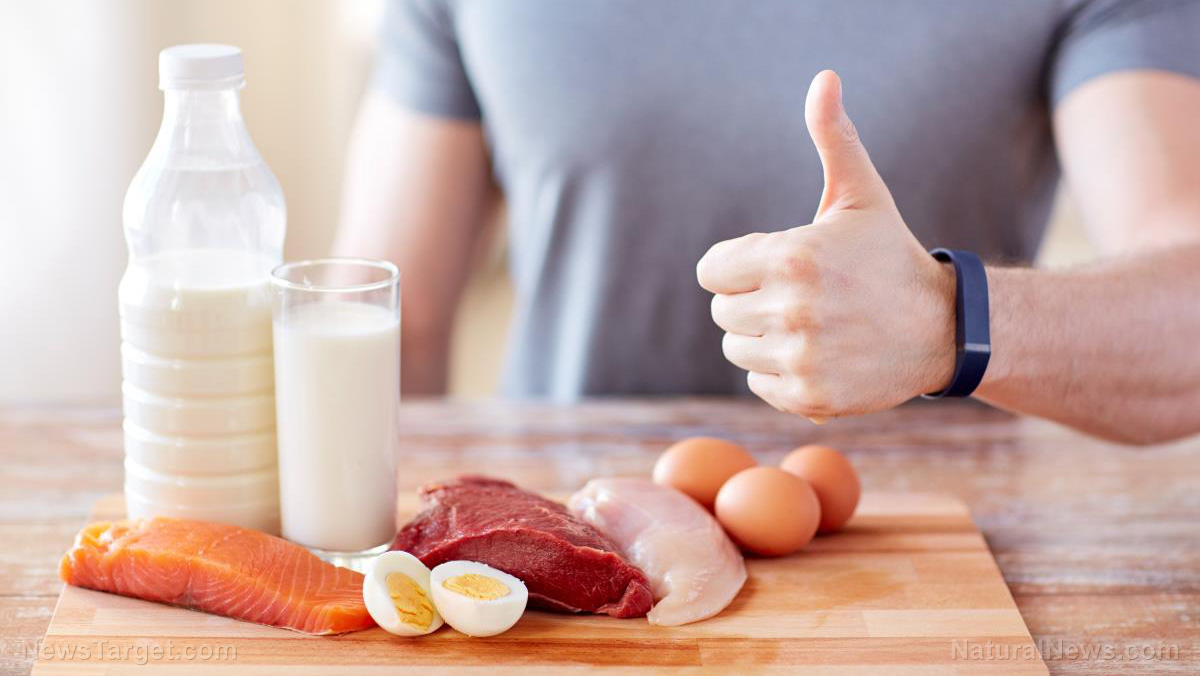by Joanne Washburn
A high-protein diet is exactly what it sounds like. It’s an eating plan that emphasizes consuming larger amounts of protein than carbohydrates, which generally make up about 45 to 65 percent of your daily calorie intake.
Protein is an important building block of your bones, muscles, cartilage, skin and blood. Therefore, you need to consume large amounts of protein to stay healthy. Protein also supports healthy muscle recovery, ensures healthy immune function and helps maintain good gut health, among other benefits.
Recently, health enthusiasts have been looking into protein for its potential role in weight loss. Previous studies show that protein can make it easier for you to curb your appetite because it can keep you feeling full for longer. As such, protein could help you lose weight or maintain a healthy weight.
Read on to learn more about how a high-protein diet can aid in weight loss.
A high-protein diet for weight loss
There are no hard and fast rules as to what goes into a high-protein diet. Generally, it includes different protein sources like beef, lean pork, poultry, fish, seafood, dairy products, eggs and healthy oils. A high-protein diet also usually restricts carbohydrates, such as bread, pasta, rice, lentils and starchy fruits and vegetables.
A high-protein diet can help you lose weight in many ways. For starters, protein affects levels of certain hormones that influence how full you feel after eating, like ghrelin and glucagon-like peptide 1 (GLP-1). Ghrelin is the hormone that triggers hunger, while GLP-1 is an appetite-reducing hormone.
With protein, your body also burns more calories, For example, if you eat 100 calories of protein, your body will burn 2o to 30 percent of those calories while processing the protein. But if you eat 100 calories of carbohydrates, your body will only burn five to 10 percent of those calories while processing the carbohydrates.
In addition, high protein intake can speed up your metabolism, making you burn more calories even during sleep.
To put it simply, you can lose weight on a high-protein diet. But there’s a caveat. According to experts, the main issue with high-protein diets is they usually restrict carbohydrates, even the healthy ones.
If you don’t get enough carbohydrates, your blood sugar levels could drop to below the normal range. This may cause you to feel hungrier, prompting snacking or overeating. You could end up gaining weight instead of losing it.
Most foods high in carbohydrates are also rich in soluble and insoluble fiber. Soluble fiber dissolves in water. It is transformed into a gel-like substance, which blocks fats that would otherwise be digested and absorbed.
Insoluble fiber, on the other hand, is the indigestible material that attracts water to your stool, making it easier to pass. As such, insoluble fiber helps prevent gastrointestinal blockage and constipation, among other digestive issues.
If you don’t get enough fiber because you’re too busy focusing on protein, it could lead to serious health problems, such as colon cancer and high blood sugar and cholesterol levels.
Some studies also found that a high-protein diet can put stress on your kidneys and cause dehydration. A high-protein diet that includes fatty cuts of meat can also raise your risk of heart disease and other chronic diseases.
If you plan to go on a high-protein diet, make sure to include lean sources of protein and healthy carbohydrates like whole grains, beans and sweet potatoes. Don’t forget about your vegetables, too.



